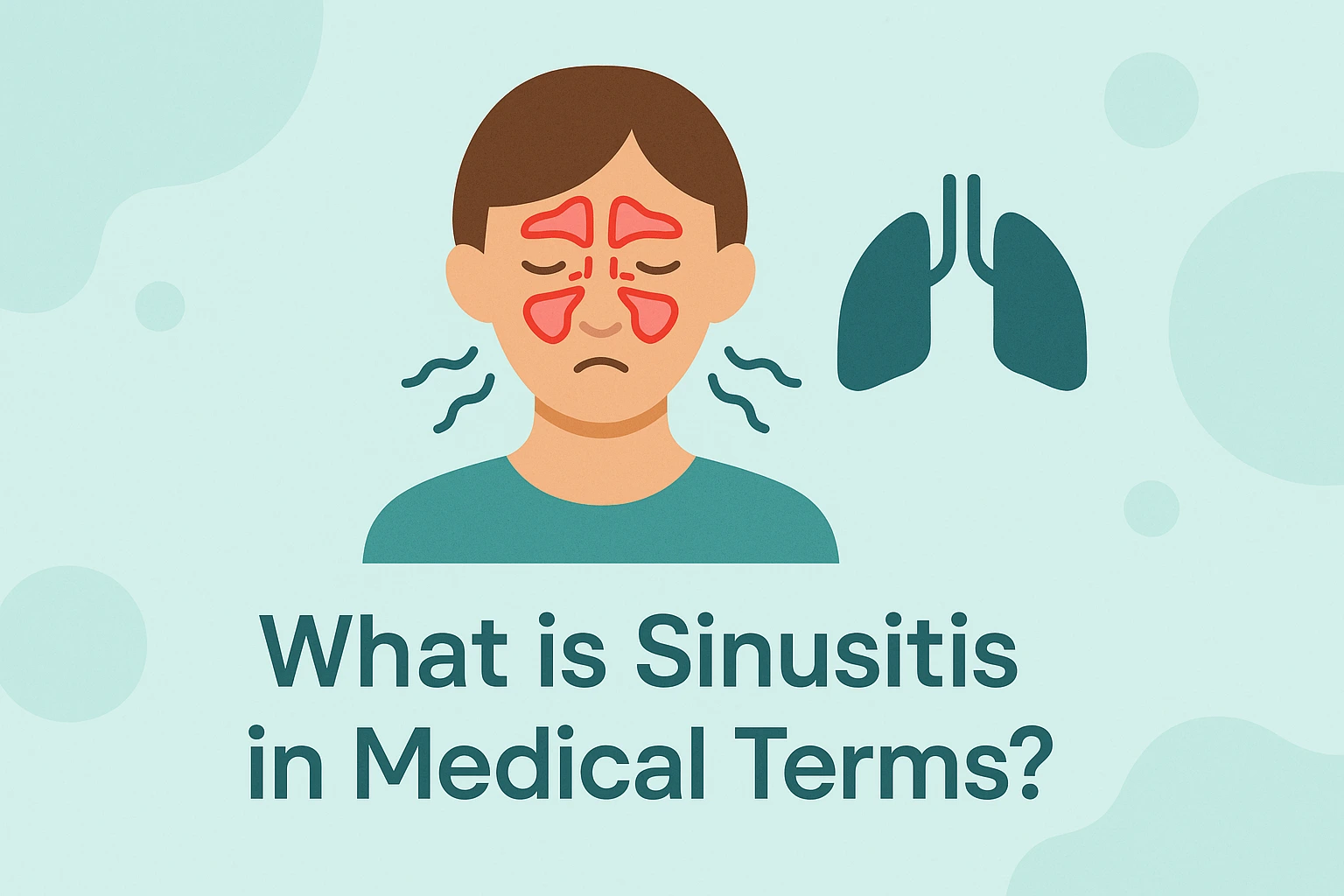Sinusitis is an inflammation or infection of the sinuses, the air-filled cavities located in the forehead, cheeks, and around the eyes. Normally, the sinuses produce mucus that helps keep the nasal passages moist and free of harmful particles. When the sinuses become blocked or infected, they can fill with fluid, leading to pain, pressure, and difficulty breathing through the nose. Sinusitis can be either acute (short-term) or chronic (long-lasting), depending on the duration and severity of symptoms.
If you experience persistent symptoms such as severe facial pain, fever, or persistent congestion lasting more than 10 days, or if you have frequent sinus infections, it’s important to see a healthcare provider. They can determine the cause of the infection and provide appropriate treatment to prevent complications.

Types of Sinusitis
Sinusitis is categorized into four types based on its duration:
- Acute Sinusitis: This type lasts for a few days to a few weeks and is often caused by a viral infection, such as the common cold.
- Subacute Sinusitis: Symptoms last for 4 to 12 weeks and may be caused by a bacterial infection or persistent viral infection.
- Chronic Sinusitis: This condition lasts for 12 weeks or longer and may involve persistent inflammation or recurrent infections. It is commonly associated with underlying conditions such as allergies or nasal polyps.
- Recurrent Sinusitis: This type involves several episodes of acute sinusitis throughout the year.
Symptoms of Sinusitis
The symptoms of sinusitis can vary depending on the severity and type but typically include:
- Facial pain or pressure, especially in the forehead, cheeks, and around the eyes.
- Blocked or stuffy nose, making it difficult to breathe through the nose.
- Thick nasal discharge, which may be yellow or green in color.
- Headache, often worsening with changes in head position.
- Postnasal drip, which can lead to a sore throat or coughing.
- Fever, especially in cases of bacterial sinusitis.
- Fatigue, often feeling tired or run down.
Causes and Risk Factors of Sinusitis
Sinusitis can be caused by a variety of factors that lead to sinus inflammation or blockage:
- Viral infections: The most common cause of acute sinusitis, often associated with common cold viruses.
- Bacterial infections: Bacterial infections can occur when a viral infection causes prolonged blockage of the sinuses.
- Allergies: Allergic reactions to pollen, dust, or mold can trigger sinusitis by causing inflammation of the nasal passages.
- Nasal polyps: Non-cancerous growths in the nasal passages that can block the sinuses and lead to chronic sinusitis.
- Deviated septum: A crooked septum (the cartilage that divides the nostrils) can obstruct sinus drainage, leading to sinusitis.
- Environmental factors: Exposure to air pollution, smoke, or dry air can irritate the sinuses and contribute to the development of sinusitis.
When to See a Doctor for Sinusitis?
Seek medical advice for possible sinusitis if: you have severe symptoms, such as a persistent high fever. Consult a doctor if symptoms worsen after initial improvement. Emergency care is necessary for fainting, chest pain, or confusion.
Related Terms of Sinusitis
FAQs for Sinusitis
When should I go to the ER for sinusitis?
If you experience severe symptoms like fainting, chest pain, or confusion, seek emergency care.
How can heat and dehydration affect sinusitis?
In hot climates, dehydration can worsen sinus issues, especially during long-haul flights or fasting.
What are some ways to reduce the risk of sinusitis?
Staying hydrated and avoiding allergens can help lower the risk of developing sinusitis.
